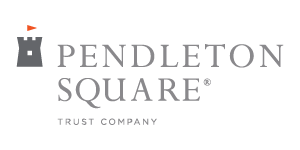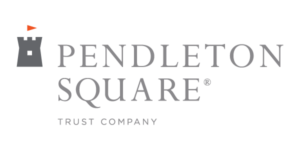As the world becomes more interconnected, global families of wealth find their ties to the United States are increasing through their offspring. They often send their children to be educated in the States, and they end up staying to begin and develop their careers. Many times, they also settle down and raise their families in the U.S.
Due to the United States’ unique approach to taxation, however, these families are often presented with complicated planning issues. As a general concept, the United States taxes its citizens, residents (and trusts) on worldwide income and assets. It also subjects foreign citizens to income tax on U.S. source income and to transfer taxes on assets located in the United States.
This creates a quandary for foreign families that look to distribute wealth to these “Americanized” family members and beneficiaries. How does one do it in a way that the family can:
- Maintain control of the wealth,
- Reduce unnecessary taxation and reporting from the United States, and
- Benefit their loved ones and other constituencies?
A Potential Solution
There are conditions within the U.S. tax system that allow certain wealth planning vehicles to be structured as U.S.-trusts for most purposes but treated as foreign trusts for income and transfer tax purposes.
For Federal income tax purposes, a trust is considered a U.S. domestic trust if it satisfies both the “court test” and the “control test.” A trust that fails either test is a foreign trust for Federal income tax purposes, even if the trust is created under and governed by the law of a U.S. state and administered in the U.S. by a U.S. trustee for U.S. beneficiaries.
The Two Tests
The court test: A trust meets the court test if a U.S. court can exercise primary jurisdiction over the administration of the trust. Most trusts in this discussion meet this test by virtue of being located within the U.S.
The control test: A trust meets the control test if one or more U.S. persons have the authority to control all substantial decisions of the trust. This decision-making authority can reside with trustees, protectors, grantors, or beneficiaries. If a foreign person controls or can veto a substantial decision, the trust will fail the control test. As a result, it is a foreign trust for Federal income tax purposes.
By constructing the trust to intentionally “fail” the control test, foreign families can avail themselves of the benefits of a U.S. jurisdiction in planning for U.S. beneficiaries while maintaining the flexibility of the foreign tax classification for tax purposes. This is often accomplished in two common structures: The Foreign Revocable Grantor Trust and the Irrevocable U.S. Domestic Non-Grantor Trust
The Foreign Revocable Grantor Trust
Carefully constructed and incorporating the “foreign person” feature of the control test, a foreign grantor trust can achieve many results for a foreign family with U.S. ties:
The foreign settlor can create the trust for his or her benefit during their lifetime and/or for U.S. beneficiaries. Distributions from the trust during the grantor’s life to U.S. beneficiaries are considered gifts, not income to the beneficiaries.
The U.S. does not tax the trust or the grantor on non-U.S. source income.
The grantor is taxed on U.S. source income. The trust is not. This can be a powerful feature for the estate planning of U.S. based assets.
Non-U.S. situs trust assets are not subject to U.S. estate tax upon the death of the settlor. Trust-owned foreign investment companies are often used to take advantage of this concept.
Upon the death of the grantor, the trust becomes irrevocable and continues for the benefit of the U.S. beneficiaries of the grantor.
Although income realized and accumulated in the trust after the grantor’s death will become subject to U.S. federal income taxes, the grantor can avoid the trust paying future U.S. state income taxes by selecting a state jurisdiction, such as Tennessee, with no income tax.
The trust may continue for generations as a dynasty trust and not subject to future U.S. transfer taxes.
The Irrevocable U.S. Domestic Non-Grantor Trust
Frequently used in the domain of multi-generational planning, an irrevocable domestic non-grantor trust has many interesting features:
- Families can make unlimited lifetime transfers of foreign assets and intangible U.S. assets for the benefit of U.S. beneficiaries that may be made free of U.S. gift and GST taxes. This can be exceptionally effective in transferring foreign wealth for the benefit of U.S. beneficiaries.
- Foreign assets and intangible U.S. assets for the ultimate benefit of U.S. beneficiaries may be removed from the estate of the foreign settlor and from the reach of U.S. estate and GST taxes at death.
- By using a jurisdiction like Tennessee, the trust may be drafted as a dynasty trust which avoids U.S. transfer taxes for future generations. This is a powerful feature for wealth that is expected to last multiple generations.
- While the trust will be subject to Federal income tax, by selecting a jurisdiction like Tennessee, it will operate in an environment free of state income tax which allows for even more powerful compounding conditions for the trust assets.
- Properly drafted and using a Tennessee jurisdiction, the trust can incorporate statutory asset protection features to protect the trust assets from creditors and others.
Conclusion
As you would expect, wealth planning and administration involving cross-border beneficiaries is complicated. The location and structure of assets, choice of jurisdiction, permanence of United States contacts, family dynamics and selection of decision-makers and vendors are all a part of the calculus in good cross-border planning. Experienced counsel and service providers are vital in making sure that clients properly set up structures and that they are well-administered. The tools discussed above are a few of those available to foreign clients with U.S. beneficiaries to consider in their wealth planning.



